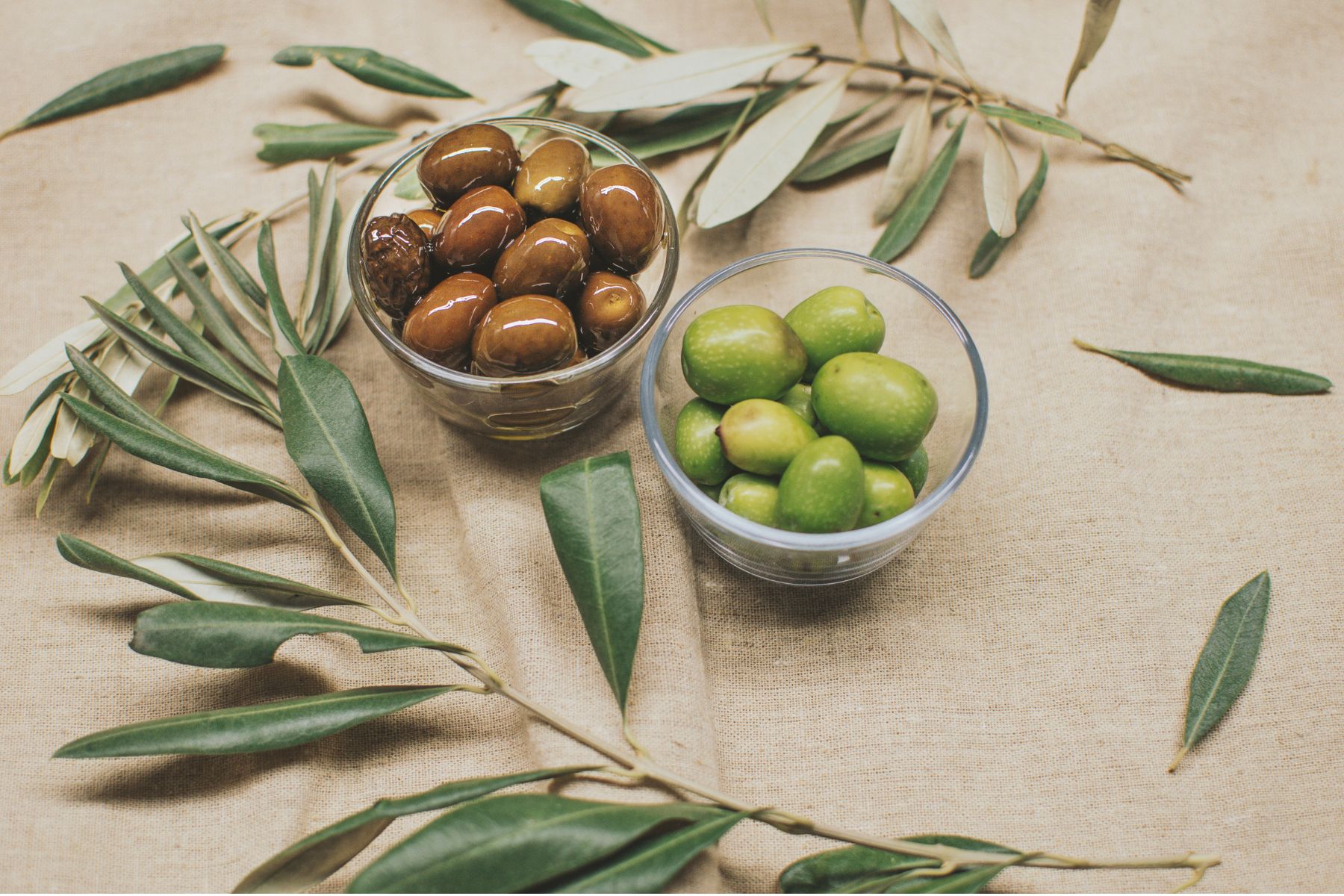
Olive Leaf Tea: Benefits, Preparation, and Consumption
What is Olive Leaf Tea?
Olive leaf tea is made from the leaves of the olive tree (Olea europaea), a plant globally renowned for producing olives and olive oil. Olive leaves have been used for centuries in traditional medicine due to their therapeutic properties. This tea is known for its mild, slightly bitter taste and its health benefits, particularly for those seeking to boost immunity, regulate blood pressure, and balance cholesterol levels.
The study “All About Olive Leaf Tea” published by the Olive Wellness Institute highlights that olive leaves contain a compound called oleuropein, renowned for its antioxidant and anti-inflammatory properties, which help protect the body’s cells.
Benefits of Olive Leaf Tea
Olive leaf tea provides a range of health benefits, making it an excellent addition to a healthy and nutrient-rich routine. The primary benefits include:
1. Helps Regulate Blood Pressure
Olive leaf tea is well-known for aiding in the control of hypertension. Oleuropein, one of the primary compounds in the leaves, supports vasodilation, improving blood circulation and helping to lower high blood pressure. For people with hypertension, this tea can be a natural ally.
According to the study “Effects of Oleuropein on Blood Pressure” published by the University of Navarra, oleuropein contributes to lowering blood pressure levels in individuals with mild to moderate hypertension.
2. Strengthens the Immune System
Rich in antioxidants, olive leaf tea helps protect the body against free radicals, which are responsible for premature cell aging. These antioxidants strengthen the immune system, reducing vulnerability to infections and diseases.
Additionally, olive leaves have antimicrobial and antiviral compounds, offering an extra layer of protection. Including this tea in your routine can be especially beneficial during colder months when the immune system needs additional support.
3. Aids in Cholesterol Control
Regular consumption of olive leaf tea can help balance cholesterol levels in the blood. Oleuropein and other compounds in olive leaves contribute to reducing LDL cholesterol (the “bad” cholesterol) while improving HDL cholesterol (the “good” cholesterol).
The study “The Impact of Oleuropein on Cholesterol” published by Ecycle emphasizes that olive leaf tea consumption can help reduce the risk of cardiovascular diseases, promoting healthy and balanced blood circulation.
4. Anti-inflammatory and Antioxidant Properties
Olive leaves are rich in anti-inflammatory compounds that help reduce inflammation in the body, effectively alleviating joint pain and discomfort. Oleuropein has shown potential to reduce inflammation and improve joint health, making it a valuable ally for those suffering from conditions like arthritis.
Studies such as “All About Olive Leaf Tea” highlight the antioxidant and anti-inflammatory action of olive leaves, showing that this tea can be an excellent natural alternative for reducing inflammation without relying on medication.
How to Prepare Olive Leaf Tea
Preparing olive leaf herbal tea is a simple process, but there are some tips to maximize its benefits and flavor. You can use fresh or dried leaves; both options offer the same benefits, although dried leaves are generally more concentrated and provide a stronger flavor.
Step-by-Step Guide to Make Olive Leaf Tea:
- Ingredients: Use one teaspoon of dried olive leaves for every 200 ml of water.
- Preparation: Boil the water and add the olive leaves.
- Infusion Time: Let the leaves steep for about 5 to 10 minutes. The longer the leaves steep, the stronger the flavor.
- Serving: Strain the tea and, if desired, add honey or a slice of lemon to soften the bitter taste.
At Chás do Mundo, you can find high-quality olive leaves, perfect for preparing a healthy tea rich in benefits. For a twist, try adding fresh mint leaves for a refreshing flavor.
How to Consume Olive Leaf Tea
Olive leaf tea can be consumed daily, but moderation is key. It is recommended to drink one to two cups a day to enjoy the benefits without overloading the body. If you have a health condition or are taking medication for hypertension, it’s advisable to consult a healthcare professional before including olive leaf tea in your routine.
The tea can be enjoyed hot or cold, making it a versatile option for all seasons. On warmer days, you can prepare the tea, let it cool, and add ice and mint leaves for a refreshing and flavorful beverage.
Precautions and Contraindications
While olive leaf tea offers numerous benefits, it’s important to consider a few precautions:
- Hypotension: People with low blood pressure should avoid excessive consumption of this tea, as it may further lower blood pressure.
- Pregnancy and Breastfeeding: During pregnancy and breastfeeding, consult a doctor before consuming olive leaf tea.
- Medication Interactions: This tea may interact with medications for blood pressure and cholesterol. Consult a healthcare professional if you are taking medication for these conditions.
Olive leaf tea is a beverage rich in natural antioxidants and anti-inflammatory properties, offering benefits for blood pressure, the immune system, and cholesterol control. Easy to prepare and versatile, this tea is an excellent choice for those seeking to enhance their well-being naturally.
At Chás do Mundo, you’ll find a variety of high-quality medicinal teas, including olive leaves and other herbs to complement your experience. Explore the range of herbal options to create personalized infusions and enjoy the benefits of olive leaf tea in your daily life.







Sorry, the comment form is closed at this time.